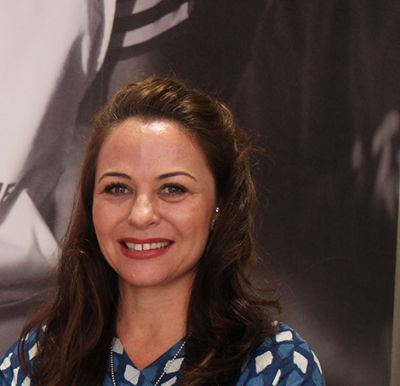
"When I talk about my time in Lebanon, I often call it ‘the crisis in the crisis in the crisis’,” explains South African midwife Zani Prinsloo, after a nine month-long Doctors Without Borders (MSF) assignment in the Lebanese capital, Beirut.
Zani worked at MSF’s women’s healthcare centres (WHC) in two refugee camps – Shatila and Burj el-Barajneh – which house vulnerable Lebanese nationals, as well as tens of thousands of Palestinian refugees displaced from neighbouring Israel starting in 1948. Since 2011 thousands of Syrians fleeing the war have also sought refuge in these same camps.
“Palestinians have lived in the camps for more or less 60 years. And now with the Syrians arriving, people continue to build and build and build – upwards, because there is no space,” says Zani. “It’s any architects nightmare. Many of the buildings are completely skew. I would stand on the balcony in the morning, thinking it’s very good nothing collapsed overnight.”
Zani says collapsing buildings account for many fatalities in the camp. However, her work as a midwife activity manager is more concerned with helping women give birth safely rather than dealing with other tragedies that occur.
“A woman giving birth is bringing new life into the world. It’s a joyous moment,” she says. “As a midwife, you walk a road with these women and you form relationships. Inherently, you see yourself in the same position. And you see your patient as your mother, your sister, or your best friend.”
Working in Lebanon was Zani’s ninth MSF field assignment. She previously worked in places as remote and difficult as South Sudan, Pakistan and Afghanistan. She also worked in Syria during the war, where people were internally displaced due to the heavy conflict.
“In Syria, women just came and gave birth in the midst of the war. They just always prayed that the baby wouldn’t be a boy because if he was he would have to go to war when the time came,” she recalls.
“In MSF’s project in the Shatila camp, about 99% of women we saw were Syrian. But it was different. A big concern was very early marriages – at least 25-30% of all the first antenatal visits were from girls under 19 years of age. The longer I stayed, the younger the girls were who we helped give birth.”
‘MSF doesn’t see race, religion or nationality’
Lebanon, with a population of less than 5 million people, today houses over one million Syrian refugees who have fled across the border in search of safety. An estimated 73,000 people live between the Shatila and Burj el-Barajneh camps, and Zani says that more than 30% of the babies born in Lebanon today are Syrian.
With healthcare being extremely expensive in Lebanon, MSF’s WHCs in Shatila and Burj el-Barajneh offer vulnerable women free antenatal care, postnatal care, family planning services, support to survivors of sexual violence, and help with uncomplicated deliveries.
MSF initially started operating in Shatila until an influx of patients led to an expansion into Burj el-Barajneh. In Shatila, the WHC outpatient department sees some 4,000 patients per month.
“Space is a very crucial issue. With MSF I’m used to big hospitals in tents and such, but in Shatila we were working in an apartment. It’s amazing what you can do in a very small space, how you can maximise every block. We used to measure out how we are using every centimetre to make sure we have space for every woman,” Zani says.
Leading a team of 46 staff – comprising of Lebanese, Syrians and Palestinians – Zani says it was sometimes a delicate balancing act trying to manage people who have lived through years of complicated history.
“It’s not always easy because there are sometimes deep personal feelings. But I’m objective, and I know their histories, so I am able to see it from a different point of view.”
“They soon learnt that MSF doesn’t see race, religion or nationality; we work together as a team and put the best interests of the patient first. So even though we cannot do anything about a patient’s past, or do anything to assure they have a good future, we will always work to bring relief and help in the present. This is a motto I believe in.”
Find out more about MSF's work in Lebanon.